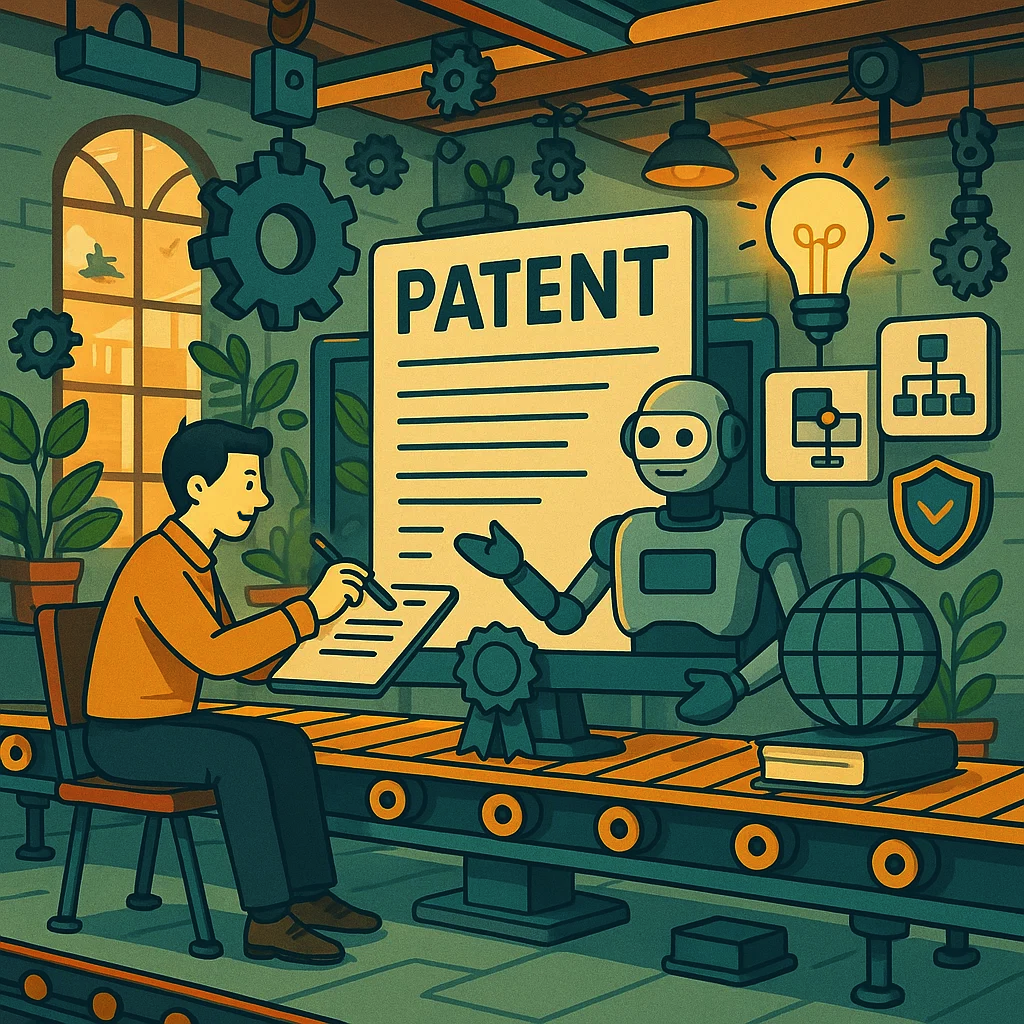Artificial intelligence (AI) is reshaping intellectual property (IP) law, particularly the work of patent professionals, like patent drafting and prosecution. As technologies advance and innovation cycles accelerate, traditional patent drafting methods increasingly fall short. AI-powered drafting tools, such as ALPHALECT.ai, provide patent attorneys and IP professionals with powerful capabilities to create precise, robust, and legally sound patent applications efficiently.
This article highlights key features, strategic benefits, and crucial security considerations when employing AI-driven patent drafting solutions.
The Number One Key Issue: Confidentiality
Confidentiality is paramount in patent drafting, especially when leveraging AI solutions. ALPHALECT.ai is committed to the highest standards of data security, ensuring that your sensitive innovation data never leaves your control. Unlike many cloud-based providers, particularly those operating in insecure jurisdictions, including the United States, ALPHALECT.ai guarantees your information remains exclusively local and under your direct supervision.
Promises of confidentiality backed merely by contractual agreements from providers in insecure jurisdictions are unreliable. Legal frameworks and surveillance policies in these jurisdictions do nevertheless pose significant risks to intellectual property. Therefore, choosing an AI patent drafting tool that provides absolute local data control is essential.
ALPHALECT.ai strictly maintains a zero data retention policy, never transmitting or storing your sensitive patent information externally. Your confidential information remains securely on your premises, fully protected from unauthorized access or governmental intrusion, ensuring optimal IP security and compliance.
Attorney Ethics and Professional Confidentiality Obligations: Worldwide are patent attorneys and lawyers bound by strict professional codes of conduct, such as the CCBE Code of Conduct, the epi Code of Conduct for European Patent Attorneys, and many other national bar association rules, which impose rigorous duties to preserve client confidentiality. These ethical obligations are fundamentally incompatible with cloud-based tools hosted in jurisdictions where client data may be accessed under foreign surveillance laws. Transmitting confidential invention disclosures to such environments creates unacceptable risks and may even breach professional duties. AI solutions like ALPHALECT.ai, which operate entirely on local infrastructure and under the exclusive control of the legal professional, are the only ethically sound option for patent practitioners.
Core Capabilities: Precision, Comprehensiveness, and Prior Art Integration
Cost and Time Efficiency Are Now Non-Negotiable: In today’s fast-paced innovation landscape, both time-to-market and cost-efficiency are critical for maintaining competitive advantage. AI-powered patent drafting dramatically reduces the time required for preparing high-quality applications—from initial invention disclosure to final filing. Automating repetitive tasks and enabling instant access to prior art insights helps IP professionals focus on strategic analysis rather than manual document generation. This time saving translates directly into financial efficiency, allowing firms to increase output without increasing resources. With corporate legal teams under pressure to deliver more with less, and law firms seeking to optimize billing efficiency, AI is no longer a nice-to-have—it is a strategic imperative.
Precision Claim Generation: Claims define the scope of patent protection. AI-driven drafting tools excel in generating clear, accurate, and jurisdiction-compliant claims. Using natural language processing (NLP), these tools consistently produce claims robust enough to withstand scrutiny from patent examiners and litigation processes.
Comprehensive Patent Drafting: Effective AI tools assist in drafting entire patent applications, including technical backgrounds, detailed descriptions, and summaries. This reduces the risk of human errors and omissions, ensuring consistent quality throughout the patent documentation.
Integrated Prior Art Search: AI solutions efficiently integrate prior art searches into drafting workflows. These tools analyze comprehensive patent databases such as those maintained by EPO, WIPO, and USPTO, quickly identifying potential conflicts and significantly reducing rejection risks, thereby strengthening patent applications from inception.
Essential Features: Added Value Beyond Cost-Efficiency
Natural Language Understanding and Customization: An optimal AI patent drafting tool must accurately interpret complex legal and technical terminology. It should also allow customizable drafting templates tailored to the specific requirements of multiple jurisdictions, facilitating global patent strategies.
Collaboration and Workflow Management: Real-time editing, robust version control, and streamlined workflow management significantly enhance collaborative drafting processes, increasing efficiency and accelerating filing timelines.
User-Friendly Interface and Support: AI-powered drafting tools should be intuitive and user-friendly, supported by comprehensive training resources and responsive customer support, minimizing adoption friction for IP teams and patent attorneys.
Additional Strategic Considerations
Global Multi-Jurisdictional Support: AI tools supporting drafting across multiple patent offices provide substantial strategic advantages. Centralized drafting solutions simplify international patent filings, reducing procedural redundancies and risks, especially within complex systems like the European Unitary Patent.
Cost Efficiency and ROI: AI patent drafting solutions should balance advanced features with competitive pricing structures. Subscription-based or flexible pay-per-use options enable firms to manage costs effectively while significantly enhancing drafting accuracy and reducing processing time.
Conclusion: AI as an Essential Partner
AI-driven drafting tools represent a transformative innovation for patent attorneys and IP professionals, reshaping the way intellectual property rights are secured. By automating routine tasks, enhancing drafting accuracy, and integrating comprehensive prior art analysis, AI technologies like ALPHALECT.ai empower legal teams to deliver stronger patents efficiently and securely.
For IP professionals seeking a competitive edge, adopting AI-driven drafting solutions is not just advantageous—it is imperative. Embracing sophisticated tools like ALPHALECT.ai ensures sustained strategic advantage, robust IP protection, and enhanced operational efficiency, all while maintaining strict confidentiality and control over sensitive data.
Take the next step and contact ALPHALECT.ai today to discover how our AI-driven patent drafting solutions can revolutionise your IP practice.
At ALPHALECT.ai, we explore the power of AI to revolutionize the European IP industry, building on decades of collective experience in the industry and following a clear vision for its future. For answers to common questions, explore our detailed FAQ. If you require personalized assistance or wish to learn more about how legal AI can benefit innovators, SMEs, legal practitioners, and innovation and the society as a whole, don’t hesitate to contact us at your convenience.


Pingback:The Confidentiality Imperative of the Institute of European Patent Attorneys (epi) – ALPHALECT.ai